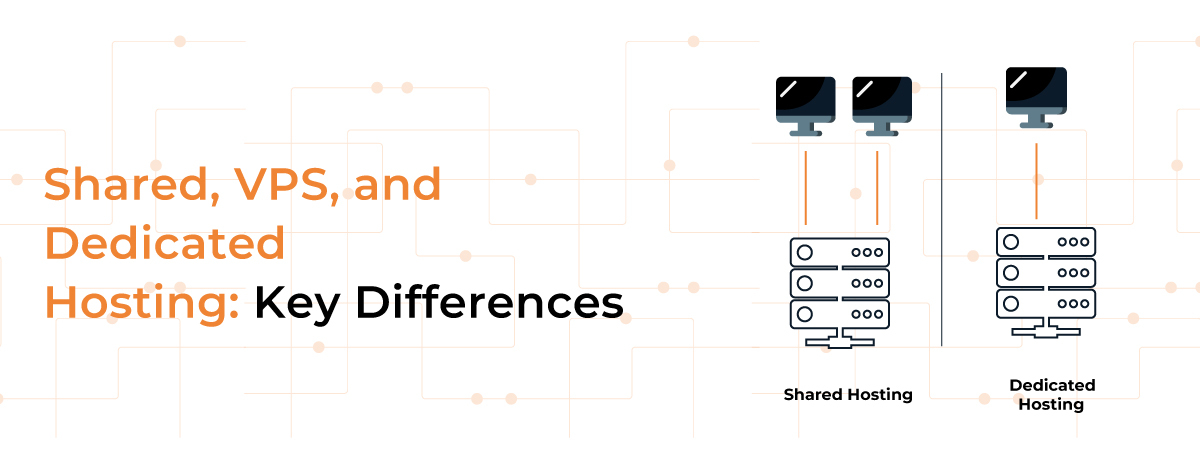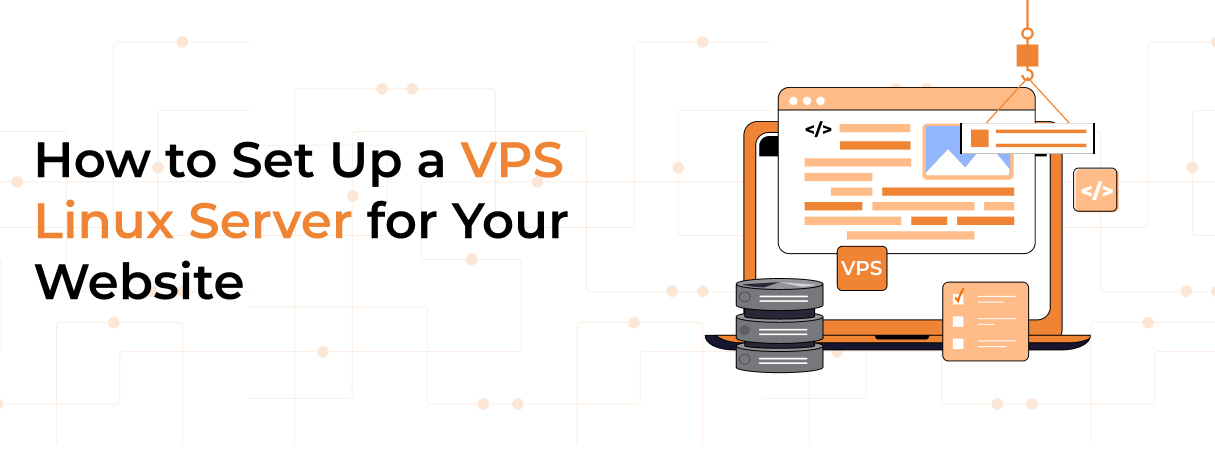Considering the many types of web hosting available, selecting the right one can be confusing. Should you opt for Shared Hosting, Managed VPS Hosting, or a Dedicated web hosting plan? You might also be wondering what VPS or Shared Hosting entails.
This guide will explain what Shared, VPS, and Dedicated hosting plans are and highlight the differences between them, helping you determine which option is best for your needs.
Table of Contents
Platform Hosting Comparisons
Shared Hosting
Shared Hosting is akin to residing in an apartment complex. All inhabitants are situated in the same vicinity and are required to distribute the accessible resources among themselves, such as the pool, parking lot, and playground. In shared hosting, all accounts must collectively utilize the available resources, including CPU time, memory, and disk space. Our System Administrators oversee all of our shared servers around the clock.
Managed VPS Hosting
Managed VPS Hosting is akin to owning a condo. You still share property aspects, yet you are accountable for property upkeep and repairs inside the condo. The number of residents per building is notably lower.
In a Virtual Private Server (VPS), resources are not entirely shared.
The CPU time and memory are distributed among all accounts on the machine, with dedicated portions reserved for each account. This setup offers greater power and flexibility compared to a shared account.
Dedicated Hosting
Dedicated hosting is akin to owning a house. You have access to all resources on the machine and no other accounts reside on it, similar to your own house.
From Apartment Living to Condo Living
Shared accounts work well for many users since they allow hosting various applications like WordPress and provide an abundance of email accounts. Drawing a comparison to apartment living, the need for an upgrade may become evident if:
A growing family: If your family outgrows your apartment’s capacity, it might be time to consider an upgrade. Similarly, as your website gains popularity in Shared Hosting, transitioning to Managed VPS Hosting could provide the necessary CPU and Memory resources for your account, enabling you to manage the increasing traffic to your site.
Customizations: If you adore the color red and wish to paint your walls red, you may not be allowed to do so in an apartment. Transitioning to a Condo grants you greater control over your living area, enabling you to paint and adorn it to your liking. Upgrading to Managed VPS Hosting from Shared Hosting provides access to software that is otherwise unavailable, affording you the freedom to install any desired software!
From Condo Living to Single Family Home Living
In line with the condo analogy, you possess significant control, yet not absolute control. While a Condo may have suited you well previously, your current situation involves a large family and a bustling daily routine. Transitioning to a single-family home might be a more suitable choice, offering ample parking space and additional bathrooms.
Managed VPS Servers prove advantageous for medium-sized businesses, providing a virtualized private server that can be customized to your preferences. However, it’s crucial to note that a Managed VPS Server differs from a Dedicated Server, as you share the server with other users, and your activities can impact them negatively. For instance, if your website is highly active, monopolizing the server’s CPU memory and processing time could lead to performance issues for other users sharing the server.
Shared Hosting vs Dedicated Hosting
There are several factors that influence the cost and value of Dedicated Hosting compared to Shared Hosting. Here are some key differences between Dedicated Servers and Shared Servers.
Server Performance:
Shared hosting may have the drawback of sharing resources among all users on the server, potentially resulting in a situation where your hosting performance is affected by high-resource activities of other users.
In contrast, a dedicated server offers faster response times and higher reliability since it is not impacted by other users. This is because you have access to dedicated resources exclusively for your use.
For instance, InMotion’s most economical Dedicated Server features a 3.50GHz Turbo Xeon processor, 16GB of DDR4 RAM, 1TB SSD storage, and 8MB of CPU Cache per account. This setup ensures that your performance is determined solely by your resource utilization and not by others sharing the server with you.
Customization
A shared hosting service needs to restrict software installations by multiple users to prevent potential security threats. Unregulated uploads could compromise your server’s security and lead to downtime for all hosted sites due to broken scripts. However, limited customization simplifies the learning process.
On the other hand, a dedicated server offers greater flexibility for customization. Optimize software installations to align with your business and customer needs without constraints or affecting other websites.
Having root user access grants unrestricted authority to modify any server aspect as required. Tailor adjustments to suit the specific requirements of your website or applications.
VPS Hosting vs Dedicated Hosting
While there are numerous distinctions between VPS hosting and dedicated server hosting, here are some key differences.
Speed
On VPS platforms, users are segregated into discrete virtual environments, sharing the same physical hardware and accessing only a fraction of the total system resources.
Dedicated hosting provides users with full access to all system resources by default. This access enhances page loading times and boosts website responsiveness. Faster page loading can lead to increased visitor retention on your site.
Price
In general, VPS hosting is significantly more cost-effective than dedicated plans due to the shared nature of VPS hosting. This cost factor is crucial to consider when planning your web hosting budget.
Conversely, dedicated hosting can be quite costly due to hardware expenses and data center operations. Consequently, dedicated servers are most suitable for large-scale applications like eCommerce businesses.
Scalability
When expanding your site or increasing storage requirements, a VPS often offers a more efficient solution. Since VPS platforms are managed virtually, storage upgrades can be achieved by allocating additional resources from the existing memory pool.
With dedicated hosting, adding more drives to the server is necessary for scaling. This incurs costs, time, and potential site downtime during hardware installation.
Still uncertain if Dedicated Hosting is the right choice for you? Explore more about the applications of dedicated hosting, the significance of data center location, and key factors to consider when transitioning to dedicated hosting.
Overall, InMotion Hosting is prepared to assist you in managing sudden bandwidth spikes that may surpass your shared or VPS accounts. Temporary adjustments can be made to your account to accommodate increased traffic.
This flexibility is also valuable during business downturns. If downsizing to a lower server is necessary, your account can be reassessed and shifted to a VPS or Shared account to reduce costs while meeting current bandwidth requirements.
Security
Hosting companies do not openly promote their security measures to avoid attracting unwanted attention. However, shared servers, VPS, and Dedicated server hosting each have distinct security protocols. InMotion Hosting offers security features, including backups and recovery, through hosting software or paid services for VPS and shared server accounts. Dedicated Server accounts with cPanel provide a Backup Manager and larger storage capacities due to their configuration and pricing.
Managed plans for all three hosting types are available, enabling users to leverage InMotion Hosting support for managing their subscribed hardware systems. Alternatively, unmanaged solutions grant users complete control over server access.
Shared and Dedicated IP Addresses
An IP Address is a unique number linked to a website, computer, or another internet-connected device enabling it to send and receive data on the web. A website or account using a shared IP address shares it with other accounts on the same server, whereas an account with one or more dedicated IP addresses can have exclusive use of a specific IP address.
Shared IP addresses are cost-effective, while a dedicated IP address can simplify certain aspects of site management and email administration. Typically, all our Shared Hosting accounts utilize shared IP addresses, whereas VPS, Cloud, and Dedicated Hosting accounts include a set number of dedicated IP addresses. If you wish to add a dedicated IP address to a Shared Hosting account or procure additional dedicated IP addresses for your VPS, Cloud, or Dedicated Hosting account, you can easily do so through the Account Management Panel (AMP).
Conclusion
Selecting the right web hosting plan depends on your specific needs and future growth. Shared Hosting is ideal for beginners and small businesses with limited traffic, offering affordability and simplicity. Managed VPS Hosting provides more control and resources, making it suitable for growing websites needing customization. Dedicated Hosting is best for large businesses and high-traffic sites, ensuring maximum performance and security.
Understanding these differences helps you make an informed decision to ensure your website runs smoothly and efficiently. For personalized advice, contact InMotion Hosting to explore the best hosting options for your needs.




















